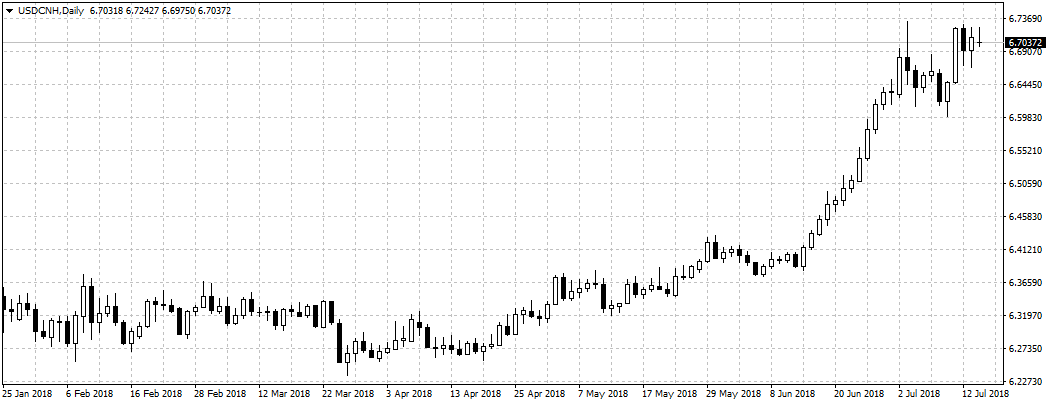- Chinese Economy Dips Slightly in Q2
The world’s second-largest economy, China, grew at a softer pace in the second quarter of the year as the trade war between the US and the exports dependent economy intensifies.
The official data showed the economy expanded at a 6.7 per cent rate in the quarter, cooling from the 6.8 per cent filed in the first quarter of the year but same as economists projected.
Despite the GDP figures being in line with market expectations, the report showed slowing economic momentum, especially in the manufacturing sector where productivity remained sluggish due to the credit control measures implemented to contain growing debt and steel policy instituted to curb pollution.
However, Jim McCafferty, head of equity research, Asia ex-Japan at Nomura, believe the underlying economic data of the world’s second-largest economy “appears to be quite robust”.
“I would be incredulous if China’s GDP growth could continue at the level it’s been historically. So I think there’s always been an anticipation of some gradual slowdown, but the slowdown of the growth rate is probably less than the market really wants to believe,” he said.
He further stated that concerns over the trade war were weighing on the markets, with investors uncertain of the outcome of the ongoing trade tensions.
“That’s why I think markets are nervous, because there’s no precedent for this type of behavior,” he added.
The Chinese Yuan dipped slightly against the US dollar to 6.7042 from 6.7242.
